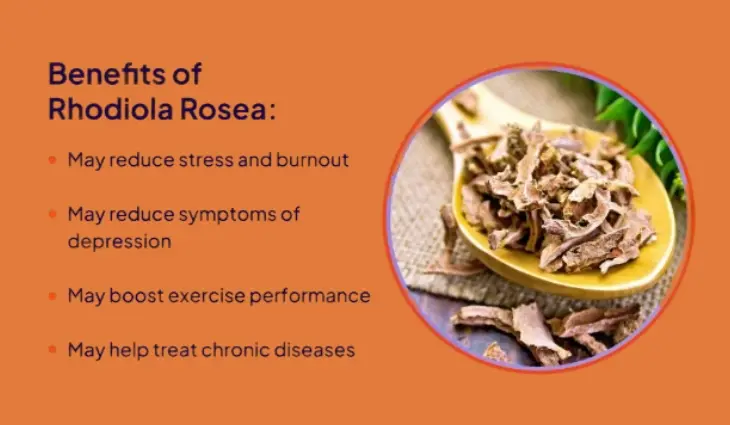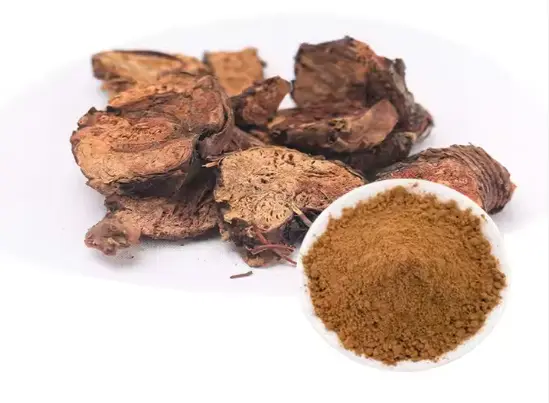What does rhodiola do to your body?
What are the benefits of rhodiola?
Rhodiola is renowned for its ability to enhance energy levels and reduce fatigue. It works as an adaptogen, helping the body to adapt to stress and physical exertion, thereby improving endurance and stamina. Studies have shown that Rhodiola can improve mental and physical performance, especially in individuals undergoing stressful or demanding situations. For instance, it has been found to enhance the anti-fatigue ability of night shift doctors and improve physical and mental performance in students during exam periods.
Rhodiola also has anti-aging properties, thanks to its ability to scavenge free radicals and protect cells from oxidative damage. This contributes to maintaining the health and youthfulness of skin and other tissues.Moreover, Rhodiola is known for its ability to improve brain function. It can enhance cognitive abilities such as memory, attention, and concentration. This makes it a popular supplement for individuals engaged in intensive mental work, such as students and professionals in high-stress environments.

Additionally, Rhodiola has been found to have a positive effect on mood and stress levels. It can reduce anxiety and depression, promoting a sense of calm and well-being. This is particularly beneficial for individuals facing chronic stress or anxiety.
Rhodioloside is also known for its anti-inflammatory and immune-boosting properties. It can help to reduce inflammation and strengthen the immune system, making it a useful supplement for maintaining overall health and preventing illness.Rhodiola has been shown to have anti-cancer properties. While the research in this area is still ongoing, some studies suggest that Rhodiola may help to prevent the growth and spread of cancer cells.
In summary, Rhodiola offers a wide range of health benefits, including enhancing energy levels, reducing fatigue, improving brain function, reducing stress and anxiety, and having anti-aging, anti-inflammatory, immune-boosting, and potential anti-cancer properties. However, it is important to consult with a healthcare professional before starting to use Rhodiola, especially if you are taking any medications or have any pre-existing health conditions.
What is the downside of rhodiola?
Rhodioloside, commonly known as roseroot, is an herbal supplement renowned for its numerous health benefits. However, it is crucial to be aware of its potential downsides before incorporating it into your health regimen. First and foremost, Rhodiola may interact with certain medications, including antidepressants, stimulants, and blood thinners. Therefore, if you are already taking medication, it is essential to consult with a healthcare professional before starting to use Rhodiola.
Additionally, some individuals may be allergic to Rhodiola or its components, leading to allergic symptoms such as skin rash, itching, swelling, or difficulty breathing. If you experience any such symptoms, discontinue use immediately and seek medical attention.
Moreover, Rhodiola is not recommended for pregnant or lactating women, as its safety during these periods has not been established. If you are pregnant or lactating, consult with a healthcare professional before considering Rhodiola. Additionally, Rhodiola may cause digestive issues such as nausea, vomiting, diarrhea, or stomach pain in some individuals. Similarly, it may disrupt sleep patterns or cause feelings of overstimulation or jitteriness in others. If you notice any changes in your sleep patterns or experience overstimulation after taking Rhodiola, discontinue use and consult with a healthcare professional.
Does rhodiola mess with hormones?
The impact of Rhodiola on hormones is a multifaceted issue, and current research has not yet reached a definitive conclusion. However, some studies suggest that Rhodiola may have specific effects on the endocrine system and hormone balance, which can be broken down into the following points:
• Regulatory Effect on the HPA Axis:
Rhodiola is an adaptogenic herb that helps the body adapt to stress and improve resistance to various stressors, including physical, chemical, and biological factors.
One of the primary ways Rhodiola achieves this is by regulating the hypothalamic-pituitary-adrenal (HPA) axis, which is a key component of the endocrine system. The HPA axis controls the release of stress hormones such as cortisol, adrenaline, and noradrenaline.
By regulating the HPA axis, Rhodiola may help to maintain a healthy balance of these stress hormones, which in turn can have a positive impact on overall hormone balance.
• Potential Effects on Testosterone Levels:
Some studies have suggested that Rhodiola may have a positive impact on testosterone levels in men. Testosterone is a hormone that plays a crucial role in male sexual health, muscle growth, and bone density.
However, it is important to note that the evidence in this area is not conclusive, and more research is needed to fully understand the potential effects of Rhodiola on testosterone levels.
• Impact on Mood and Stress Hormones:
Rhodiola has been found to have a positive impact on mood and stress levels, which may be related to its effects on hormone balance.
By reducing stress and anxiety, Rhodiola may help to regulate the release of stress hormones such as cortisol, which in turn can have a positive impact on overall hormone balance and mood stability.
• Anti-Inflammatory and Immune-Boosting Properties:
Rhodiola has also been found to have anti-inflammatory and immune-boosting properties, which may indirectly impact hormone balance.
Chronic inflammation and a weakened immune system can disrupt hormone balance and contribute to a range of health issues. By addressing these issues, Rhodiola may help to maintain a healthy hormone balance.
Potential Interactions with Other Hormones:
While the primary focus of research on Rhodiola has been on its effects on stress hormones and the HPA axis, it is possible that Rhodiola may also have interactions with other hormones in the body.However, more research is needed to fully understand these potential interactions and their implications for hormone balance.
How long does it take for rhodiola to start working?
The time it takes for Rhodiola to start working can vary depending on a number of factors, including the individual's metabolism, the dosage taken, and the specific form of Rhodiola used (e.g., capsules, powder, or extract). Rhodioloside Rhodiola Rosea Extract Powder for sale

Generally speaking, it may take several weeks for Rhodiola to start showing noticeable effects. This is because Rhodiola is an adaptogenic herb that works gradually to help the body adapt to stress and improve overall resilience. It is not a quick fix or an immediate solution for stress or fatigue.
Some individuals may notice subtle changes within a few days or a week of starting to take Rhodiola, while others may not notice any significant effects until after several weeks of continuous use. It is important to give Rhodiola time to work and to be consistent with taking it as directed.
Additionally, it is worth noting that Rhodiola may not work for everyone. Some individuals may not experience any noticeable effects, while others may experience side effects or interactions with other medications or supplements. Therefore, it is always advisable to consult with a healthcare provider before starting to take Rhodiola or any other herbal supplement.
In summary, the time it takes for Rhodiola to start working can vary depending on individual factors. It is important to be patient and consistent with taking Rhodiola as directed, and to consult with a healthcare provider if you have any concerns or questions.
Reference:
1.https://qualityherb.en.made-in-china.com/product/UFPtgqDxqmcz/China-Rh2.odiola-Extract-Salidroside-3-HPLC-Free-Sample.html
3.http://www.360doc.com/content/19/0102/14/53557818_806034229.shtml
4.https://m.chem960.com/ask/q-68f2ef7c54604628aadb08a5b020f071
5.https://baijiahao.baidu.com/s?id=1799828511898530310&wfr=spider&for=pc
6.https://www.gztep.com/cha-ju-zhi-shi/236092.html
7.https://xueshu.baidu.com/usercenter/paper/show?paperid=f17e518150541ce459ab91fa4d0a9eb9
8.https://www.qk.sjtu.edu.cn/jdcp/CN/abstract/abstract44627.shtml
9.https://www.sohu.com/a/728808978_121124549

 Food Additives
Food Additives









